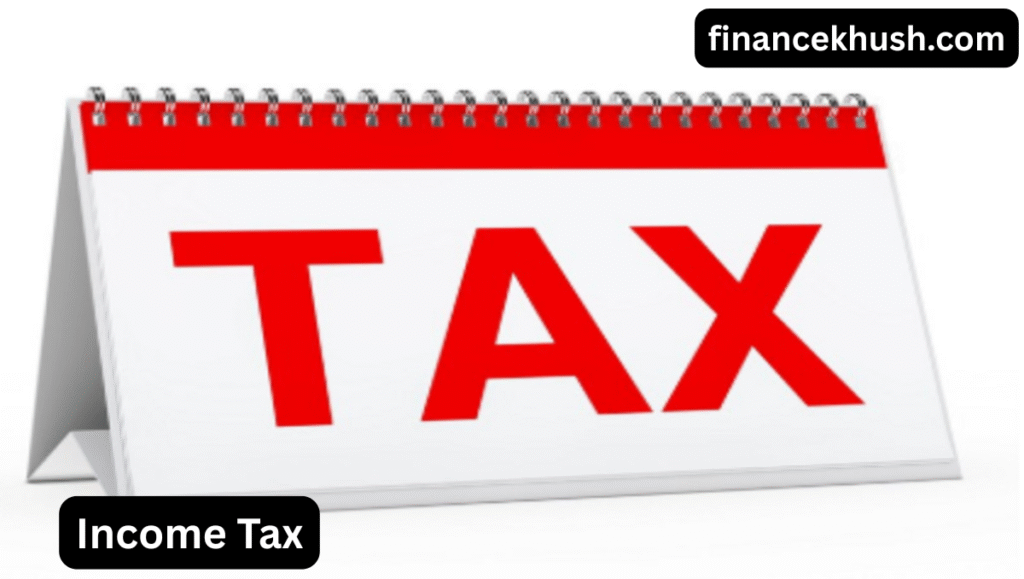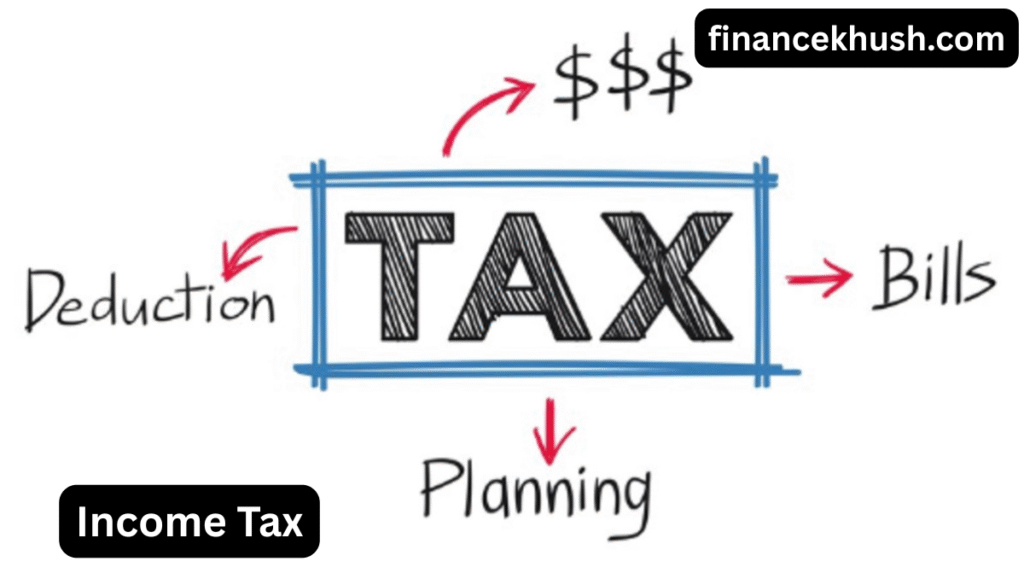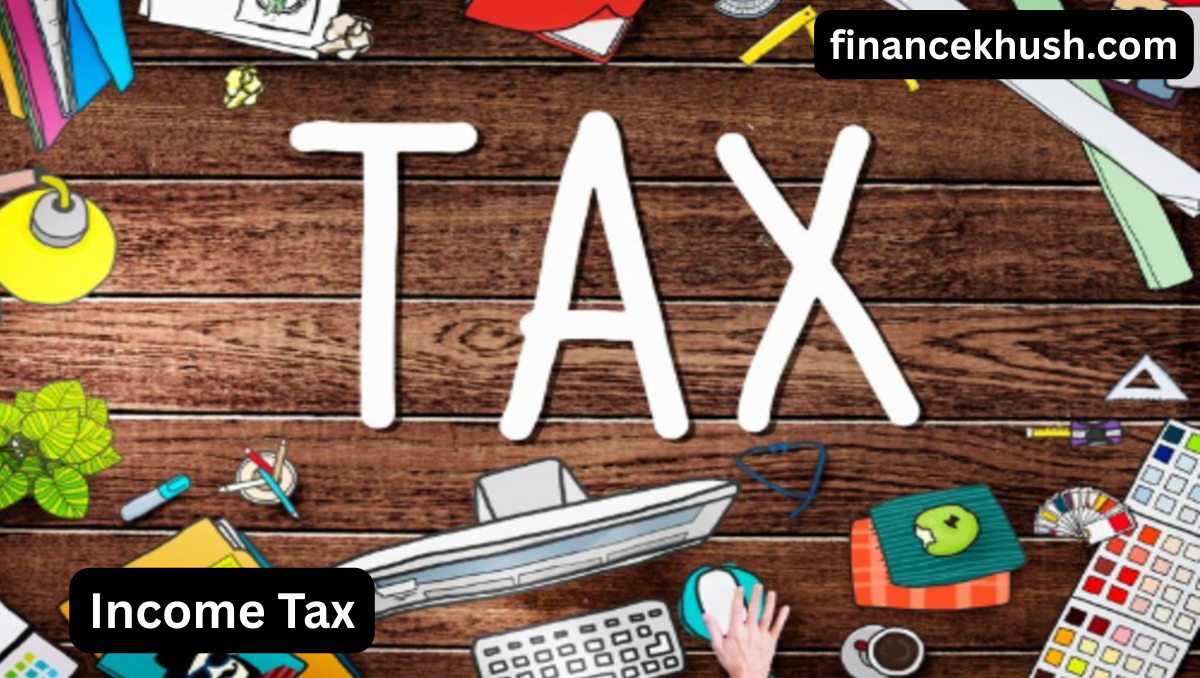Income tax. It’s a term that’s as old as civilization itself. But despite its long history, many people still find it confusing and overwhelming. If you’re one of them, don’t worry. This blog post is designed to simplify everything about income tax. From understanding what it is to exploring its advantages and disadvantages, we’ll break it down in simple, everyday language.
What Is Income Tax?
Income tax is a tax that governments impose on individuals’ and businesses’ earnings. It’s an Income Tax
significant source of revenue for governments, and it helps fund public services, infrastructure, and social welfare programs.
Essentially, it means a percentage of your income gets deducted and paid to the government. Whether you’re working a regular job, running a business, or even earning from investments, income tax applies to almost every form of income.
The exact rate at which you are taxed depends on your country, your income bracket, and the type of income you earn.
How Does Income Tax Work?
Income tax systems vary by country, but they generally work on the principle of progressive taxation. Here’s how it works in most places:
- Determine Your Total Income: This includes your salary, wages, business income, interest from savings, dividends from stocks, and more.
- Apply Deductions: Most tax systems allow certain deductions like medical expenses, mortgage interest, student loan interest, and retirement contributions. These deductions reduce your taxable income.
- Apply the Tax Rate: Once you have your taxable income, the government applies a specific tax rate to that amount. As income increases, the tax rate usually increases, though tax rates can vary depending on how much you earn.
- Pay the Tax: After calculating the tax owed, you either pay it upfront through payroll deductions (in the case of employees) or file an annual tax return and pay what is owed.
The Pros of Income Tax
While taxes can often feel like a burden, there are several positive aspects to income tax that make it an essential part of any functioning society.
1. Public Services and Infrastructure
Income taxes fund many essential services we rely on daily. Schools, hospitals, roads, and public transportation systems are often funded by tax revenue. Without taxes, governments would struggle to provide these necessary services, and life as we know it would be much harder to navigate.
2. Redistribution of Wealth
One of the core principles behind income tax is redistributing wealth to reduce inequality. Progressive tax systems mean that those with higher incomes pay a higher percentage, helping to provide social programs that benefit those who are less fortunate. This helps create a more balanced and fair society.
3. Government Stability
Taxes allow the government to maintain financial stability. Governments need revenue to run their operations effectively, and income tax is a steady, reliable source of income. Without it, governments would need to rely on borrowing or printing money, which could lead to inflation or fiscal instability.
4. Social Safety Nets
Income tax is also used to fund social safety nets like unemployment benefits, pensions, and healthcare for the elderly. Without these systems, people who lose their jobs or face financial hardships would have nowhere to turn for help.
5. Encourages Economic Development
By taxing the wealthy more, governments can use that revenue to fund infrastructure projects that can lead to job creation, promote innovation, and stimulate economic growth. It’s a way for governments to help shape the economy positively.

The Cons of Income Tax
While income tax has its benefits, there are also some negative aspects that cannot be ignored. Let’s take a look at the drawbacks.
1. Tax Burden
For many, paying taxes can feel like a financial burden. The more you earn, the higher the percentage of your income goes to the government. For people in higher income brackets, this can mean a significant chunk of their salary is deducted in taxes. This can be frustrating, especially when taxpayers don’t feel like they’re receiving enough benefits or services in return.
2. Complexity
Income tax laws are often complicated and difficult to understand. Taxpayers may struggle to figure out how much they owe, what deductions they qualify for, and how to fill out tax forms correctly. Some people end up hiring tax professionals to handle their tax returns, which adds an extra cost to the process. Simplifying tax systems could make the process less stressful for everyone.
3. Potential for Inefficiency
Governments sometimes mismanage the revenue collected from taxes. Instead of using the funds to support the public good, some governments might allocate funds inefficiently. This can lead to wasteful spending, corruption, and underfunded programs that don’t serve the public’s best interests.
4. Discourages Investment
High taxes on income can sometimes discourage people from working harder or pursuing entrepreneurial ventures. If the rewards of hard work are diminished by high tax rates, people may not feel motivated to invest in their skills or ideas. It could even discourage international investment, as businesses might be attracted to countries with lower tax rates.
5. Tax Evasion and Avoidance
One of the biggest issues with income tax is the temptation to evade or avoid paying taxes. Some individuals and corporations use loopholes, offshore accounts, or creative accounting methods to reduce their tax liability. This practice, though often illegal, can severely damage the effectiveness of the tax system and shift the burden onto law-abiding taxpayers.
Different Income Tax Systems
Across the world, income tax systems vary. Some countries have progressive tax rates, while others have flat tax rates or regressive systems. Let’s look at a few common types:
1. Progressive Tax System
Most developed nations, such as the United States, Canada, and the United Kingdom, use a progressive tax system. In this system, the tax rate increases as your income increases. For example, the first $10,000 of income might be taxed at 10%, the next $20,000 at 15%, and so on, with higher income brackets being taxed at progressively higher rates.
2. Flat Tax System
Some countries, like Estonia and Russia, have a flat tax system where everyone pays the same percentage of their income, regardless of how much they earn. For example, if the flat tax rate is 20%, both a person earning $30,000 and a person earning $300,000 would pay 20% of their income in tax. This system is simple, but critics argue that it places a heavier burden on low-income individuals.
3. Regressive Tax System
In a regressive tax system, the tax burden increases as income decreases. Sales taxes (taxes on purchases of goods and services) are a common example. Since poorer individuals spend a higher proportion of their income on goods and services, they effectively pay a larger percentage of their income in tax. Regressive taxes are controversial because they tend to disproportionately affect those with lower incomes.
Tips to Reduce Your Income Tax Liability
While income tax is an obligation, there are legal ways to reduce the amount you owe. Here are some common strategies:
1. Take Advantage of Tax Deductions
Deductions are a great way to reduce your taxable income. This includes deductions for mortgage interest, student loan interest, medical expenses, and contributions to retirement accounts. Be sure to research the deductions available in your country and ensure you claim them to reduce your tax burden.
2. Invest in Tax-Advantaged Accounts
Many countries offer tax-advantaged savings accounts for retirement (like 401(k) in the U.S., RRSP in Canada, or Superannuation in Australia). Contributions to these accounts often reduce your taxable income, and you only pay taxes when you withdraw the money.
3. Tax Credits
Tax credits directly reduce the amount of tax you owe. Unlike deductions, which reduce your taxable income, tax credits reduce your final tax liability dollar-for-dollar. Some countries offer credits for things like education, healthcare, or investing in renewable energy.
4. Plan for Capital Gains Taxes
If you invest in stocks, bonds, or real estate, the profits you make (called capital gains) may be subject to tax. However, in many cases, long-term capital gains (profits from assets held for over a year) are taxed at a lower rate than regular income. Understanding how capital gains tax works and planning accordingly can save you money.
5. Hire a Tax Professional
If you’re feeling overwhelmed, it might be a good idea to consult with a tax professional. They can help you navigate the complexities of the tax system and ensure you’re taking full advantage of available deductions and credits.

Conclusion
Income tax, while often viewed negatively, plays a crucial role in maintaining a functioning society. It provides the funds for essential services like education, healthcare, and infrastructure. While the tax burden can feel heavy, especially for higher-income individuals, the redistribution of wealth helps create a more equal society.
However, the complexity of tax laws and the potential for inefficient use of tax revenue means that the system isn’t perfect. High taxes can sometimes discourage hard work, investment, and entrepreneurship. Moreover, issues like tax evasion and avoidance can undermine the effectiveness of the tax system.
related post
Here are top 5 faq
1. What is income tax?
Income tax is the money that the government takes from your earnings. It’s usually a percentage of what you make, whether it’s from your salary, business profits, or investments. This money helps fund things like schools, hospitals, roads, and other public services.
2. Why do I need to pay income tax?
Paying income tax is your way of helping to fund the services and programs that benefit everyone in society, like healthcare, education, and infrastructure. It’s a way of contributing to the country’s overall well-being and making sure things run smoothly.
3. How is income tax calculated?
Income tax is calculated based on your total earnings. Your country may have different tax brackets, which means the more you earn, the higher the percentage of tax you may have to pay. The government may also allow deductions or credits to reduce the amount of tax you owe.
4. Can I reduce the amount of tax I pay?
Yes! You can reduce your tax by using things like tax deductions (e.g., for medical expenses, retirement savings) or tax credits (which directly reduce your tax bill). Keeping track of these can help lower your overall tax liability.
5. What happens if I don’t pay income tax?
Not paying your taxes can lead to fines, interest charges, or even legal action. It’s important to file your taxes on time and pay what you owe to avoid penalties. If you’re struggling, you can often arrange a payment plan with the government.

3 thoughts on “How Income Tax Works: A Beginner’s Guide In 2025”